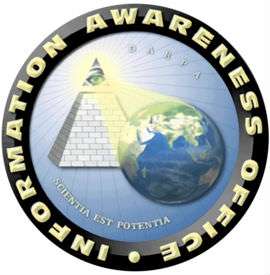ACLU Challenges NSA's Phone Record Dragnet

Today the American Civil Liberties Union filed a federal lawsuit arguing that the National Security Agency's wholesale collection of telephone records exceeds the NSA's statutory authority and violates both the First and Fourth Amendments. According to the ACLU's complaint, "The practice is akin to snatching every American's address book—with annotations detailing whom we spoke to, when we talked, for how long, and from where. It gives the government a comprehensive record of our associations and public movements, revealing a wealth of detail about our familial, political, professional, religious, and intimate associations."
The ACLU says the NSA is abusing Section 215 of the PATRIOT Act, which authorizes secret court orders seeking "any tangible things" deemed relevant to a terrorism investigation, by obtaining blanket orders related to millions of people. It cites the response of Rep. James Sensenbrenner (R-Wis.), a PATRIOT Act author who was chairman of the House Judiciary Committtee when Section 215 was adopted, to the recently revealed order demanding the phone records of all Verizon customers. "Based on the scope of the released order," Sensenbrenner wrote in an op-ed piece published by The Guardian on Sunday, "both the administration and the [Foreign Intelligence Surveillance Act] court are relying on an unbounded interpretation of the act that Congress never intended." In a June 6 letter to Attorney General Eric Holder, Sensenbrenner likewise complained about "an overbroad interpretation of the act." The Electronic Privacy Information Center made a more detailed argument against the Obama administration's interpretation of Section 215 in a June 7 letter to members of Congress.
The ACLU's First Amendment claim rests on the argument that routine collection of phone records "is likely to have a chilling effect on whistleblowers and others who would otherwise contact Plaintiffs for legal assistance." The current version of the complaint does not make a detailed Fourth Amendment argument, and it may be hard to construct one in light of Supreme Court rulings that say people do not have a constitutional right to privacy in material they voluntarily disclose to third parties. But the reference to the "wealth of detail" about sensitive matters that can be found in a comprehensive phone-call database suggests an argument that might resonate with the same justices who were disturbed by that aspect of GPS tracking in the 2012 case U.S. v. Jones.
Previous attempts to challenge anti-terrorism surveillance in court have been defeated by the "state secrets" doctrine or by the difficulty of demonstrating injury from a clandestine program. But in this case the Obama administration has acknowledged the program, and the ACLU itself is a customer of Verizon. And as the ACLU notes, "news reports since the disclosure of the [Verizon] order indicate that the mass acquisition of Americans' call details extends beyond customers of [Verizon], encompassing all wireless and landline subscribers of the country's three largest phone companies." Assuming the information obtained from wireless carriers includes geolocation data, this program raises issues similar to those addressed in Jones, but on a massive scale.
Editor's Note: As of February 29, 2024, commenting privileges on reason.com posts are limited to Reason Plus subscribers. Past commenters are grandfathered in for a temporary period. Subscribe here to preserve your ability to comment. Your Reason Plus subscription also gives you an ad-free version of reason.com, along with full access to the digital edition and archives of Reason magazine. We request that comments be civil and on-topic. We do not moderate or assume any responsibility for comments, which are owned by the readers who post them. Comments do not represent the views of reason.com or Reason Foundation. We reserve the right to delete any comment and ban commenters for any reason at any time. Comments may only be edited within 5 minutes of posting. Report abuses.
Please to post comments


The ACLU still exists?
The ACLU is an affirmative action advocacy organization now. They switched focus after getting all the 10 Commandments plaques and public square creches removed.
Apparently, it's been overrun by Randroid teathuglicans. [/Obot]
Good, bring every possible lawsuit and every possible challenge and make this as difficult as possible for the government.
This is why we can't have anything nice.
These lawsuit-filing terrierists are an existential threat to America! We need to gather information on them so that their activities and membership can be duly droned for the security of our children!
Terrierists? Like Toto's owner? Not sure if the typo was intentional, but I like it!
Good for them. I just joined and donated.
It won't make a difference until there are real consequences for the people who sign off on these power grabs.
Does it really matter if it violates the PATRIOT Act? IT RUNS AFOUL OF THE 4th AMENDMENT!!! Their behavior could be perfectly in line with whatever laws they can drudge up. If it is unconstitutional, it's fucking unconstitutional.
Multiple lines of attack, my friend.
The ACLU says the NSA is abusing Section 215 of the PATRIOT Act, which authorizes secret court orders seeking "any tangible things" deemed relevant to a terrorism investigation...
Hey wait a minute... I thought metadata wasn't a "tangible thing"!
Smetimes man you jsut have to roll with it.
http://www.AnonStuff.tk